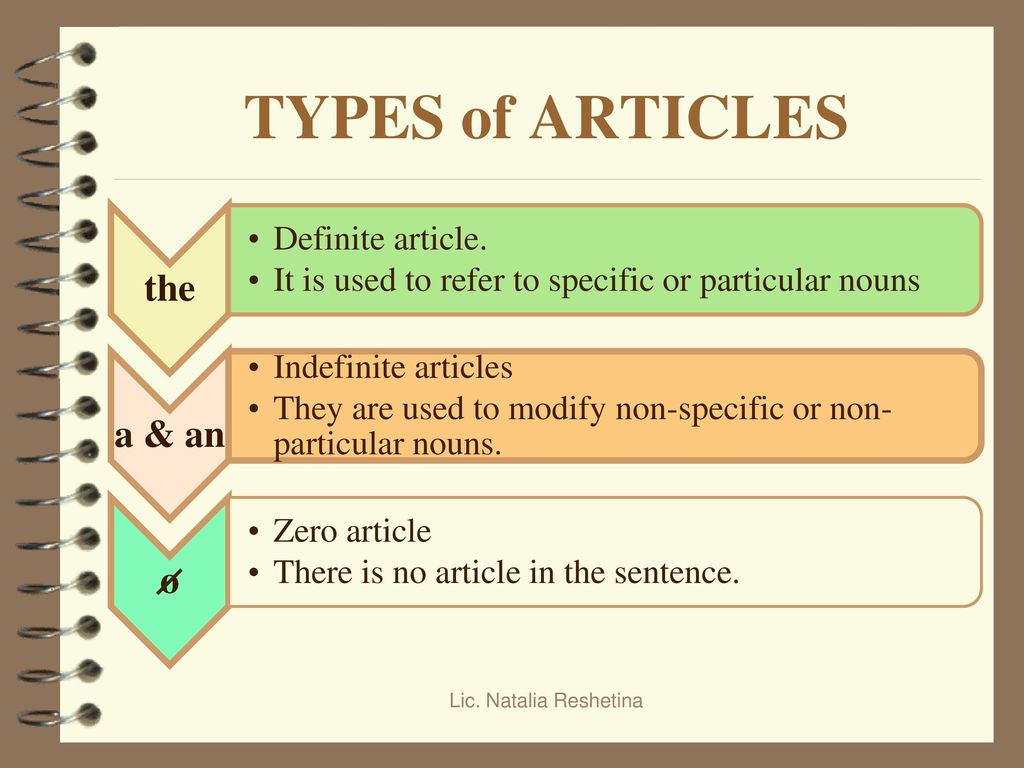The Mechanics of Articles: A Guide to Their Usages
Comprehending the auto mechanics of write-ups is vital for achieving clarity and accuracy in interaction. The differences between the definite and indefinite short articles can dramatically alter the meaning of a sentence, impacting exactly how details is conveyed. Usual errors, such as the incorrect application of "a" and "an" or the abuse of short articles with uncountable nouns, can bring about complication. As we check out these subtleties, we will reveal not just the regulations yet additionally the strategies for improving your writing. What implications do these technicians have for efficient expression?

Types of Articles
When it pertains to understanding the types of write-ups, it is essential to damage down the distinctions that exist amongst them. Articles in the English language are classified mainly right into 2 types: definite and indefinite posts.
The precise post, "the," is used to refer to specific nouns that are understood to the visitor. It indicates that the noun it changes is specific and identifiable, distinguishing it from various other possible entities. For instance, in the phrase "guide on the table," the audio speaker suggests a specific publication that both the audio speaker and listener are familiar with.
In contrast, uncertain short articles, "a" and "an," are made use of to refer to non-specific nouns. The choice in between "a" and "an" depends on the phonetic context of the complying with word, where "an" is utilized prior to vowel audios.
Definite Post Usage
The definite article "the" plays a pivotal duty in defining nouns within a sentence, making it possible for clear interaction of ideas. Its primary feature is to show that the noun it precedes is special or known to the reader or listener. As an example, in the expression "guide on the table," "the" signals that a details book is being referenced, one that is recognizable in the context - sssdarticles.
" The" is commonly made use of with single and plural nouns, in addition to uncountable nouns, better improving its adaptability. When talking about principles, events, or entities that are universally recognized, such as "the Earth" or "the Web," the definite post serves to emphasize their singularity. In addition, it can be utilized with superlatives, as in "the most effective solution," to signify a specific level of contrast.
In various contexts, the precise short article additionally appears with geographic names, institutions, and social recommendations, such as "the United States" or "the Louvre." Understanding its suitable use is crucial for achieving accuracy in language, thereby promoting reliable communication in both created and talked types.
Indefinite Article Use
Uncertain short articles, especially "a" and "an," serve an unique objective in language by introducing nouns that are not particularly recognized to the reader or listener. These posts convey a sense of abstract principle, showing that the noun they modify is one of many possible instances instead than a details entity.
The selection in between "a" and "an" depends on the first audio of the following word. "A" is utilized before words that start with a consonant noise, while "an" comes before words that begin with a vowel noise.
Indefinite articles additionally come into play when talking about professions, races, or associations. In general, the right use of indefinite write-ups enhances communication by giving clearness Discover More Here and precision concerning the nouns being discussed.
Usual Blunders to Stay Clear Of
Lots of students encounter pitfalls when using indefinite short articles, which can cause confusion in interaction. A typical error is making use of "a" prior to words that start with vowel noises, such as "an honor" or "an umbrella." This mistake directory stems from concentrating exclusively on the first letter instead than the phonetic sound. Furthermore, students usually misuse uncertain short articles with vast nouns, incorrectly mentioning "a water" instead of merely using "water," which does not call for a short article.
One more constant mistake involves omitting the indefinite write-up when it is necessary. For instance, one may state "I saw pet in the park," neglecting to include "a." This omission can make sentences seem incomplete. On the other hand, utilizing uncertain write-ups exceedingly can also result in uncomfortable phrasing, such as "I had a good time at a the celebration."
Comprehending the contexts in which indefinite short articles ought to be used is essential. They are not made use of when referring to basic classifications, as in "Felines are lively," rather than "A cat is playful." Recognizing these common errors will improve clarity and precision in composed and talked English.
Tips for Effective Use
To efficiently use indefinite short articles, it is very important to recognize their proper contexts and nuances. Uncertain articles, particularly "a" and "an," are used to describe non-specific products or to present new concepts. When making use of "a," keep in mind that it comes before nouns beginning with a consonant audio, while "an" is used before vowel audios. This distinction is crucial for preserving grammatical accuracy.

Furthermore, stay clear of excessive using uncertain posts in instances where specificity is needed. Method analysis numerous messages to observe how knowledgeable authors use uncertain articles, enhancing your understanding of their efficient application.
Final Thought
Comprehending the distinct duties of precise and uncertain posts enables for more reliable expression of concepts. Eventually, a firm grip of post usage is crucial for efficient academic and professional interaction.